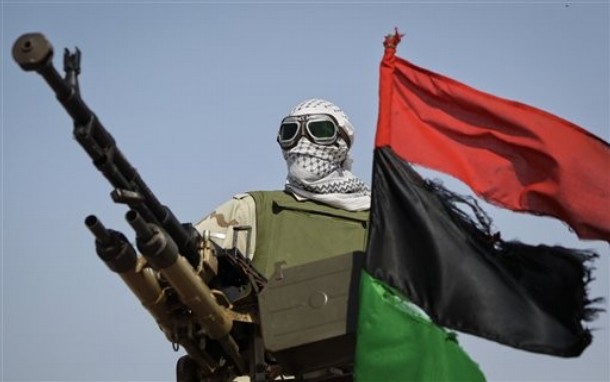
From Doyle MacManus, the Los Angeles Times: Hope isn’t a strategy. But it was a major part of NATO’s decision to launch an air war against Libya’s Moammar Kadafi almost three months ago.
Back in March, when the bombing began, the leaders of France, Britain and the United States hoped Kadafi’s regime would shatter under the shock and awe of modern munitions, and that Libyan military officers would take the advice of their European counterparts and overthrow their leader.
None of that happened. Instead, France’s Nicolas Sarkozy, Britain’s David Cameron, President Obama and their allies are mired in a lengthening war of choice that none of them cared all that much about in the first place. NATO has just renewed its initial 90-day commitment to military action in Libya for another three months. Britain’s foreign secretary, William Hague, recently told the BBC that the bombing might last the rest of the year. . . .
In a contest of wills between NATO and Kadafi, NATO still appears likely to win in the long run. Kadafi is hanging on because his survival is at stake; there’s no comfortable retirement plan for tyrants anymore. Yet Sarkozy and Cameron also need to win; they’ve staked much of their stature as leaders on the outcome.
But will this war, initially promised as a quick, low-cost intervention to prevent humanitarian disaster, still look like a good bargain if the bombing continues past Christmas? Or if the only way to end it is with NATO boots on the ground?
Helping Libya’s rebels overthrow Kadafi was a good idea in March, and it still is today. But the difficulty of actually reaching that goal should have come as no surprise.
At the start of the war, Cameron assured his nervous Parliament: "This is not Iraq." In its peculiarities, of course, Tripoli is very different from Baghdad. But the war is teaching Europeans something Americans learned years ago on the banks of the Tigris: No matter how appealing the cause, military intervention is rarely as easy or as cheap as it looks. (photo: AP)
Image: ap%204%2015%2011%20Libyan%20rebel%20near%20Ajdabiya.jpg
